The Shadow of the Crane is an interactive drama and puppetry programme designed in collaboration with award winning Welsh theatre industry professionals, PuppetSoup.
The programme, for school aged children in years 3-6 (Key Stage 2), re-engages children in learning following the pandemic and encourages them to consider important environmental topics and themes in exciting and empowering ways.
The project draws inspiration from the Newport Wetlands and Gwent Levels and introduces young people to aspects of local history and the environment, and helps develop their creative writing, presenting, and interpersonal skills, and improve their confidence and resilience.
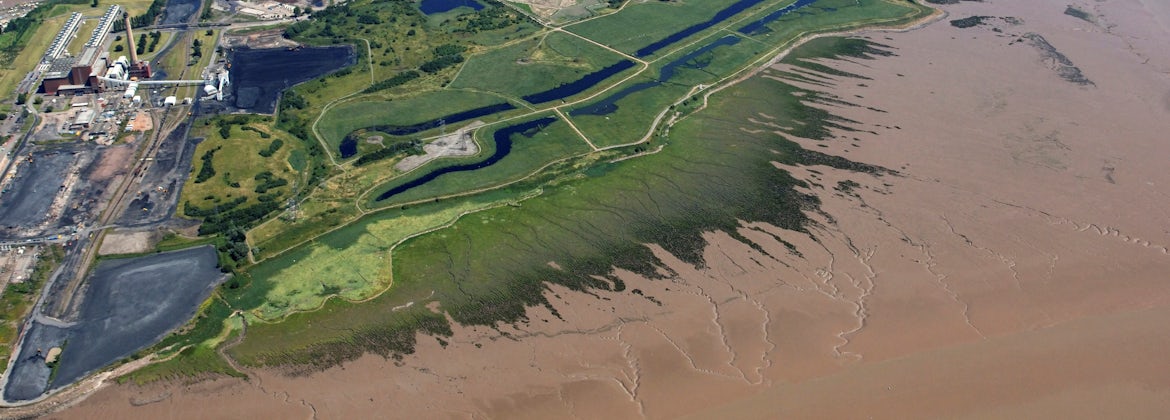
Newport Wetlands Nature Reserve is a haven for wildlife on the edge of Newport, and was one of the main inspirations behind the workshops.
Drawing inspiration from the local area
The project been delivered in classrooms in Mid Wales and Newport and the surrounding area, with future plans to potentially host sessions at the educational space at the RSBP Newport Wetlands reserve.
The story focuses on a young girl the same age as the school children taking part in the drama and integrates facts and real events drawn from the Newport Wetlands and its history. These include the discovery of human footprints from the late Mesolithic age near Goldcliff, and the heartening news that in 2016, for the first time in 400 years, two cranes built a nest and had young in the levels.
A further focus is flooding and rising water levels, drawing on the Great Flood of 1607, which was one of the worst natural disasters in British history.
The wetlands were recently the subject of national media coverage when the development of a bypass for the M4 was proposed, which would have gone through the nesting site of the cranes and destroyed swathes of the area; the proposal was dropped due to the efforts of campaigners.
These events combined relate to the key themes of the drama, pertaining to human interaction with and impact on nature, environmentalism, and climate change. Its focus will be on a positive message about the value of connecting with nature, and how we as humans are very much a part of it.
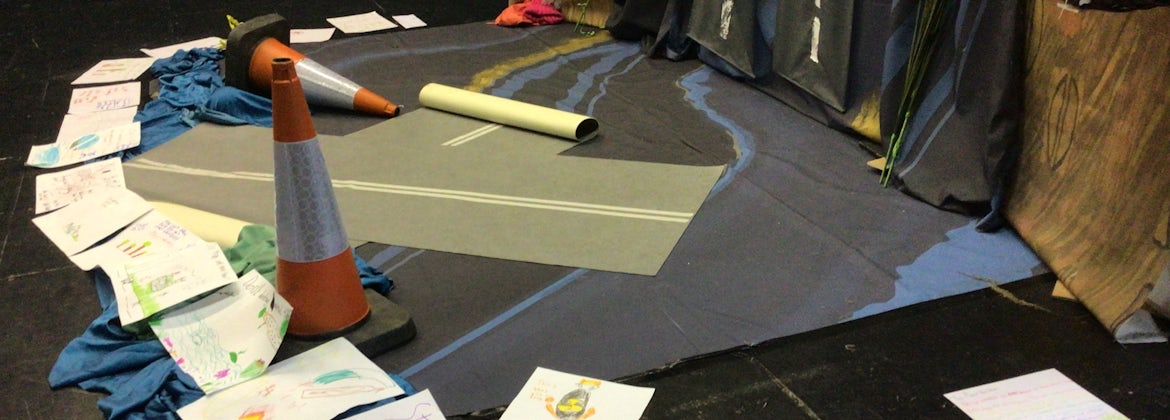
The drama and workshops are run by theatre practitioners in schools in around Newport and Mid Wales.
Stepping into the story
The plot follows a young girl who feels lonely and displaced due to circumstances in her life, and sets out to explore the wetlands; in so doing she makes some amazing discoveries – including the fossilized footsteps of a girl her age from millennia ago, as well as the cranes and their nest.
When the nest comes under threat due to an environmental menace she – and the school children joining in the drama – must help the birds protect their home, and unborn young, while also finding an alternate solution to the challenges posed by the need for development and infrastructure.
After watching the first part of the drama, the children take part in a creative workshop to collectively decide what the ending of the story should be. They discuss their own ideas and experiences, move elements of the set around, and talk to the theatre practitioners in character, exploring the themes and concepts from the story and developing their creative and critical thinking skills.
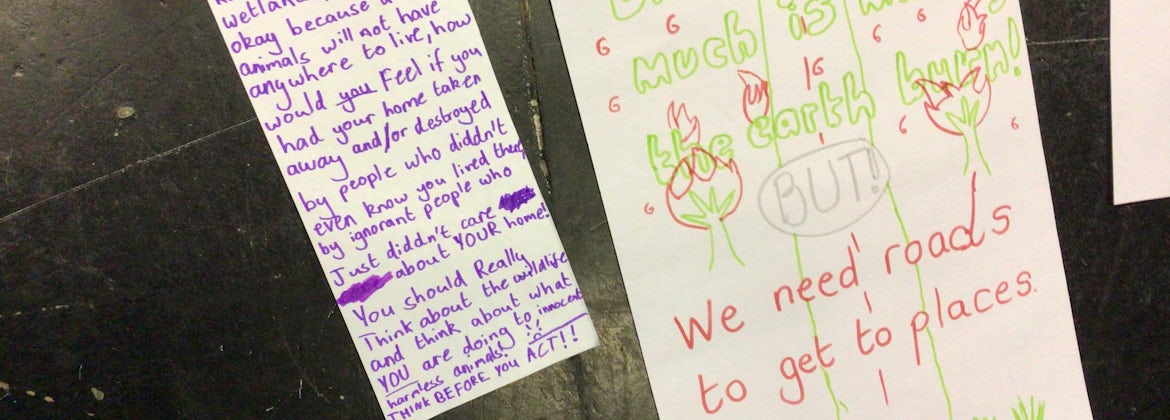
After watching the first part of the drama, the children take part in a creative workshop to collectively decide what the ending of the story should be.
Engaging with current issues
By joining the theatre practitioners in making the story and creating an ending, young people are introduced to local history and the environment, while developing their creative, presenting, interpersonal skills, confidence and resilience.
“Events in the news really affect kids and yet there’s nothing they can do about them, which can make them feel scared and helpless,” says project lead Dr Tyler Keevil. “Through the workshops we wanted to empower them to engage with issues, to think through them and play an active part.”
Responses from students and teachers have been very positive. “It was brilliant, and really authentic,” says a teacher from a school who took part. “It captured the current issues in a way that could be understood by pupils which they were able to relate to, especially with it being a local area to where they live.”
So far the programme has engaged with over 200 pupils from Years 3, 4, 5 and 6 in schools in the Mid Wales and Newport areas.
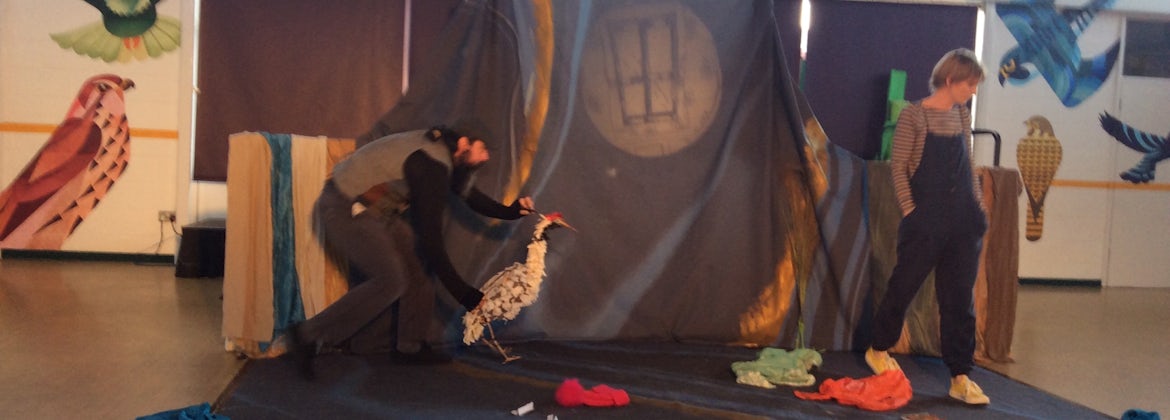
Young people are introduced to local history and the environment, while developing their creative, presenting, interpersonal skills, confidence and resilience.
Creating a lasting legacy
As a follow-up to the performance, the children reflect on their role in the drama and create and present their own responses to the themes, characters, story, and setting in the form of prose, posters and art.
These will be collated into an online resource that students, teachers, parents and theatre professionals will be able to access and share – ensuring a sustainable legacy for the project.
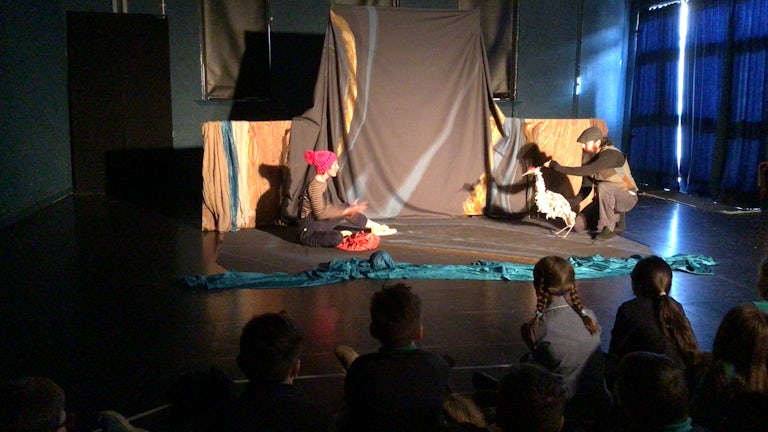
Our local community projects
We use our wide range of expertise to support and deliver impactful community led projects alongside student and staff volunteers.
